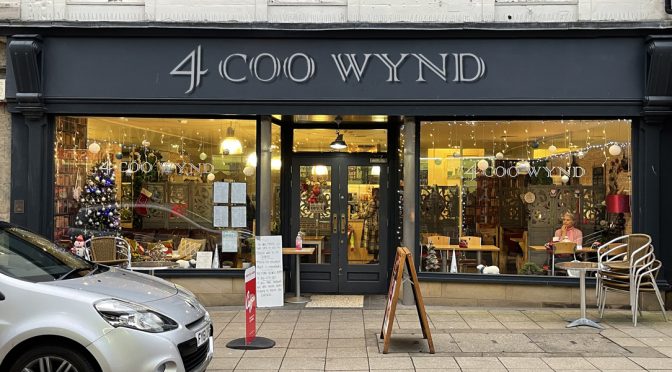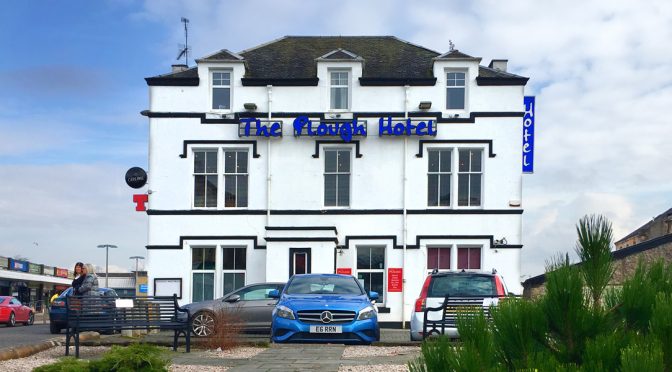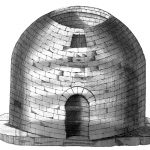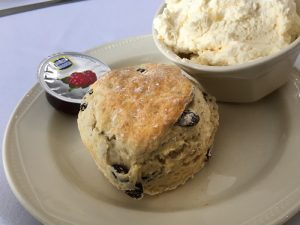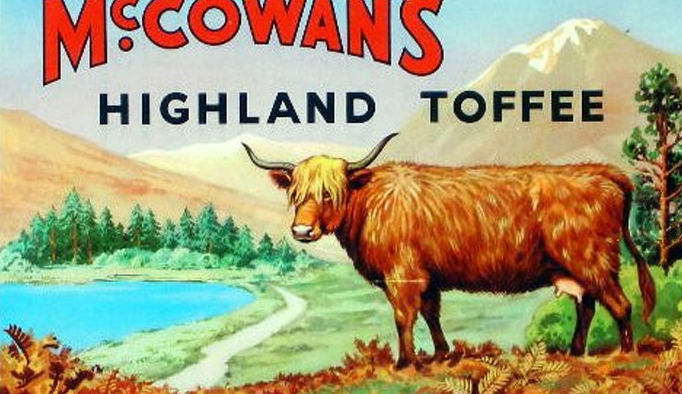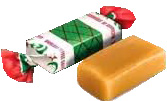Although 4 Coo Wynd is only a few minutes walk from our home it’s three years since we were last here. Goodness, a lot has happened since then! Back then we were bemoaning the fact that businesses in Falkirk didn’t seem to last. This place was called Cafe Trio back then and before that it was Sorocha’s and before that it was Mathiesons and before that, in 2003, it was Sleeves … a record shop – remember them? Having said all that, 4 Coo Wynd is right next door to Thomas Johnston Butchers, established in 1861, so what on earth are we going on about??
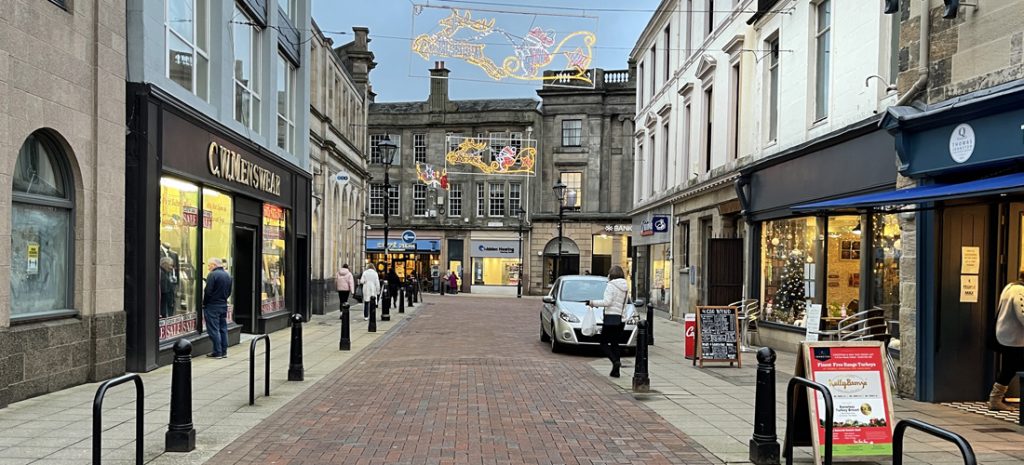
Three years ago we were debating the important issues of the day e.g. what jam to have with a treacle scone and would Brexit have an effect on the scone supplies. The answer to the first question was ‘none’, just butter is best. Brexit hadn’t yet happened but we were looking forward to the promised sunny uplands. Still waiting! Didn’t bother discussing COVID-19 because we had never heard of it!
Back to the present. For the benefit of our far flung readers we should perhaps explain the name “4 Coo Wynd”.  It is simply the address of the cafe which, more accurately is 4 ‘Cow’ Wynd. Coo is simply Scottish pronunciation of “cow”. In the 18th century, Falkirk Tryst was the biggest cattle market in the country. The town was a rumbustious place in those days. However, there is more to Falkirk than just cows … much more.
It is simply the address of the cafe which, more accurately is 4 ‘Cow’ Wynd. Coo is simply Scottish pronunciation of “cow”. In the 18th century, Falkirk Tryst was the biggest cattle market in the country. The town was a rumbustious place in those days. However, there is more to Falkirk than just cows … much more.
- This was as far north as the Romans got. They liked it so much they decided to settle here, a sort of shangrila. Emperor Antoninus even built a wall across Scotland and through the town to protect it from less civilised influences. Traces of this period can still be found with the ice cream parlours scattered around the town?
- Falkirk has seen two major battles. The first, in 1298, was one of the major battles in the First War of Scottish Independence … can you believe it’s still going on? The second was in 1746, the penultimate battle fought on British soil but fought for the same reason as the first.
- In 1565 the marriage agreement between Mary Queen of Scots and the Dauphin of France was signed at Callendar House. She would become Queen of France as well as Scotland.
- In the 18th century the town became the heart of the iron industry with 61 foundries. Starting with munitions for the Battle of Trafalgar to the famous red telephone boxes still found all around the world. The inventiveness of these foundries making baths, stoves and sanitary ware led to massive increases in public health and comfort.
- Now the town has the Falkirk Wheel and the Kelpies and shortly, two distilleries … what’s not to like?
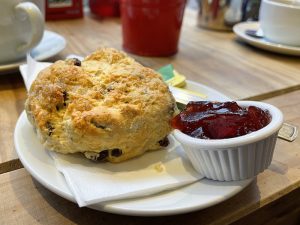 Okay, okay, the world owes a great deal to Falkirk but can we just get on with scones, we hear you cry! We decided to start with a bacon roll from their all-day-breakfast menu, followed by a fruit scone. Probably the best bacon rolls we have ever tasted … excellent! The scone was very good too but, unfortunately just not quite good enough to make the topscone grade. Shame, the service was warm and friendly, we thoroughly enjoyed our visit to 4 Coo Wynd.
Okay, okay, the world owes a great deal to Falkirk but can we just get on with scones, we hear you cry! We decided to start with a bacon roll from their all-day-breakfast menu, followed by a fruit scone. Probably the best bacon rolls we have ever tasted … excellent! The scone was very good too but, unfortunately just not quite good enough to make the topscone grade. Shame, the service was warm and friendly, we thoroughly enjoyed our visit to 4 Coo Wynd.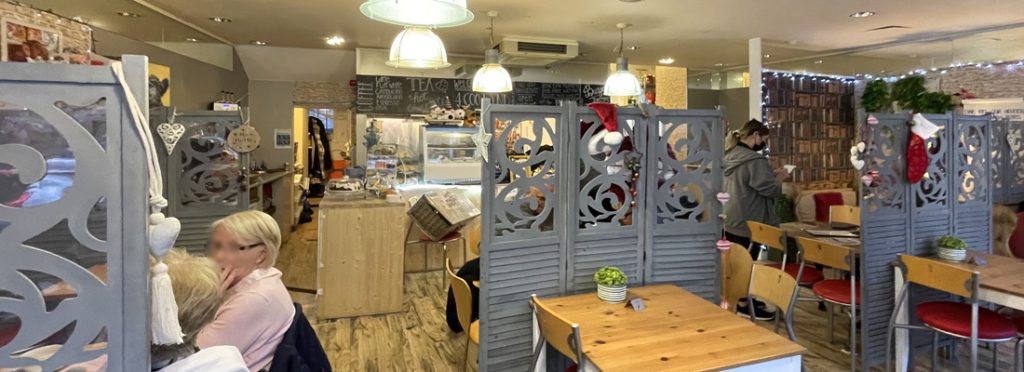
Predictions
Given the current fiasco that passes for UK government we, perhaps, shouldn’t be all that surprised at the predictions of a recent poll. It says that, at the next election, ALL Scottish MPs at Westminster will be from the Scottish National Party. We did mention earlier that the first battle of Falkirk in 1298 was during the Wars of Scottish Independence. Soooo, do you think that, if this prediction actually came to pass, it would make any difference? Of course not!
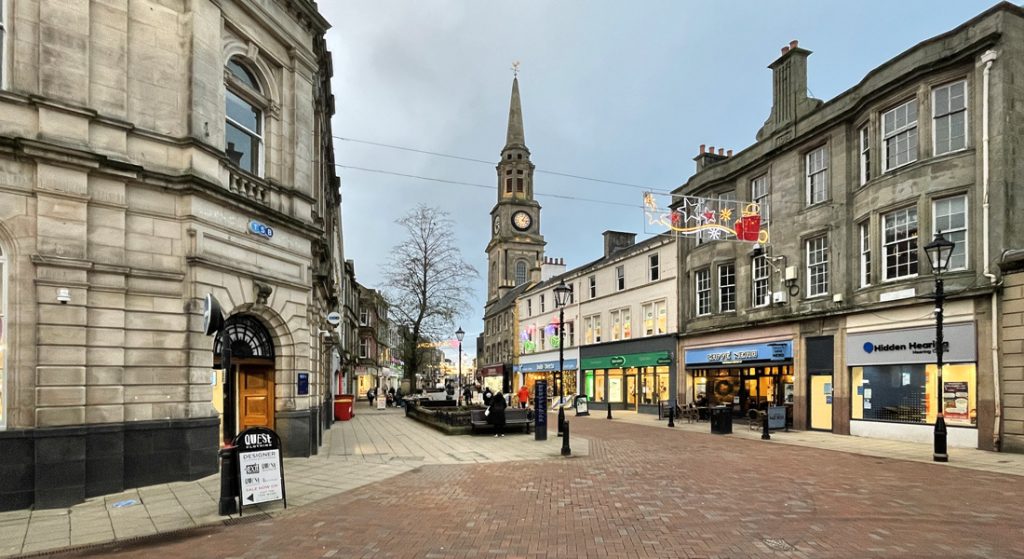
Three years ago we also reviewed a scone from Passiontree Velvet in Toowoomba, Queensland. These were the heady days of unrestricted travel and bountiful scones all over the world … ahh, the memories! Once again it looks like our scone adventuring has been brought to a shuddering halt by COVID-19. 4 Coo Wynd will probably be our last for a while. That means we need to take this opportunity to wish all our readers a very merry Christmas and a happy, healthy and prosperous 2022 when it comes. You have put up with our rants for a very long time, best wishes to you all!
FK1 1PL Tel: 07477 173117 4 Coo Wynd
///deep.tricky.shower

